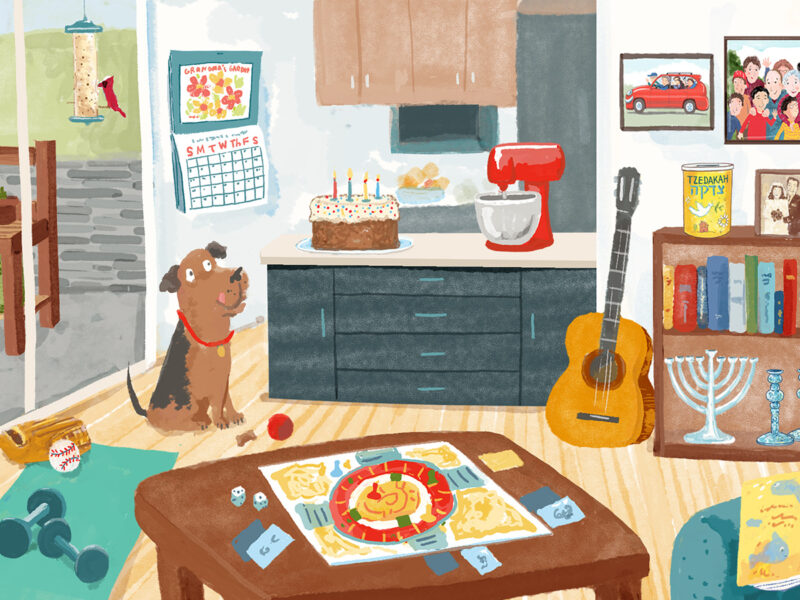DAVID FUKS | CEO | CEDAR SINAI PARK
Independent, assisted and nursing home care; day care; affordable housing; and in-home care for seniors.
The essence of memory is supported by experience and surroundings that provide us with cues. For example, the placement of photographs or familiar objects can help to orient us and remind of us of our sense of home and our sense of ourselves. Familiar music and foods trigger sense memories that often bring back moments of pleasure or recollections of our personal histories. At Cedar Sinai Park we provide opportunities for those we serve to be surrounded by familiar personal objects and to experience the foods and entertainment that help to trigger stronger memory skills. Relationships support memory. Being around others with similar experiences who can share memories helps to trigger memory. Whether family or staff, caregivers must maintain the relationship. Remaining good humored and responding calmly as those we love struggle with memory helps to promote a sense of wellbeing and to reduce self-defeating anxiety when our loved ones are frustrated or a bit confused. The goal is to be a best friend. As we age we need to continue learning. Lifelong learning helps us remain as sharp as possible. Managing our diet and keeping active also help. Most important, having friends and loving faces around makes a significant difference.
MICHELE WILLEMSE | LIFE ENRICHMENT DIRECTOR | COURTYARD VILLAGE AT RALEIGH HILLS |
A very social and active independent senior retirement community.
I believe exercising your brain is the same as exercising your body. You need a variety of activities and exercises to keep healthy. Our brain does so much for us: it helps us create, problem solve and interpret our world through our senses. We do so much daily that we end up going on “auto-pilot” when we do regular tasks. In order to “wake up” the brain, do something new! If you are a left-brain thinker, try learning to paint or sculpt. If you are a right-brained person, try a logic puzzle, learn bridge or chess, or do Sudokus. You can stimulate your brain by using your non-dominant hand to perform a mundane task (i.e., brushing your hair, eating, opening a door, etc.). In addition, challenge your senses by isolating a sense. Go outside, close your eyes and identify what your neighbors are doing just by the sound. Close your eyes while you do a simple task like wrapping a package or putting silverware away. Even walking somewhere new will “feed” the brain with new information to interpret.
DAM PAYN | SALES DIRECTOR | MIRABELLA
A new not-for-profit, resident-centered continuing care retirement community.
Stay active and engaged! Just as physical exercise is important for our bodies, mental exercise and social engagement is essential for the brain. At Mirabella residents, younger and older, continually challenge their minds by learning new art forms, engaging in spirited conversations with neighbors, playing a musical instrument or auditing a class at a local university. Mirabella provides the infrastructure for its residents to do so by fostering on-site lectures and musical performances and providing transportation to art and cultural experiences in Portland. Also, the Portland Streetcar runs in front of Mirabella’s doorstep, so many residents use it to go to Portland State University for classes. The Mirabella community embraces the idea that to maintain and improve one’s memory, the mind must be engaged and challenged to learn new things.
GINNY KENNEDY | EXECUTIVE DIRECTOR | NORTHWEST PLACE
Enjoy fully engaged living at NorthWest Place – luxury retirement residences located in vibrant NW Portland.
“Memory loss is a concern of growing older regardless of someone’s actual age. In fact, experts say that mild memory loss is perfectly normal. But like all aspects of your health and well-being, you need to take care of your brain. Here are four easy tips to help stave off “senior moments”: Exercise: While exercise is good for your body, it is also good for your mind. Get your blood pumping with something you enjoy – take a walk on a beautiful day or try something new like yoga or tai chi. Balanced Diet: Fuel your brain as well as your body. Incorporate “healthy brain” foods such as whole grains, salmon, blueberries or even tomatoes. Lifelong Learning: Try something new. Learning a new hobby, language or skill can keep your mind agile. Adequate Sleep: Easily overlooked, your body and mind need time to
replenish themselves from the day’s activities with deep, restorative sleep.
MELISSA AUGUSTINE | WELLNESS DIRECTOR | TERWILLIGER PLAzA
A 62+ community located in the heart of downtown Portland.
Researchers have found that certain lifestyle factors may lead to the development of memory problems. Robert G. Winningham, PhD, states that approximately 10% of older adults have dementia and an additional 10% have mild cognitive impairment. Genetics, age and previous life history play a role in memory and cognitive abilities and are out of our control. However, there are things we all can do to improve our memory ability and reduce the chance of developing dementia. This list of activities is derived from a more extensive list from Dr. Winningham’s book, Train Your Brain: How to Maximize Memory Ability in Older Adults. Go to a different grocery store, go dancing or take a dance class, study a foreign language, buy furniture that needs assembly, learn to juggle, attend medical lectures at hospitals, participate in a play, subscribe to daily e-mails (e.g., word of the day or health tip of the day), try to develop a new hobby and volunteer.
Anyone who stops learning is old, whether at 20 or 80. Anyone who keeps learning stays young. The greatest thing in life is to keep your mind young. Henry Ford (1863-1947)




